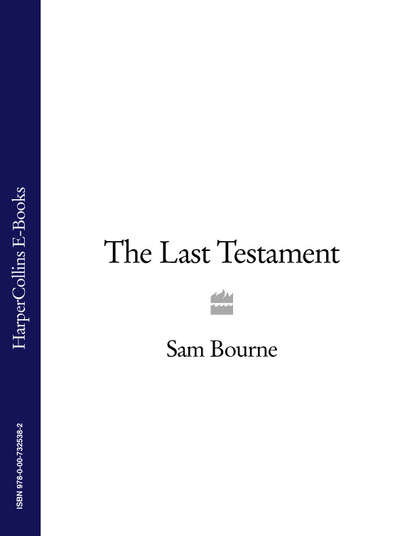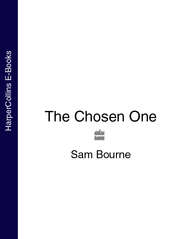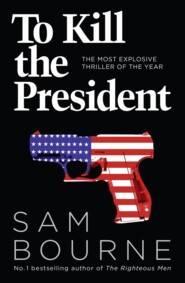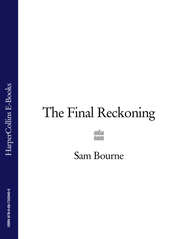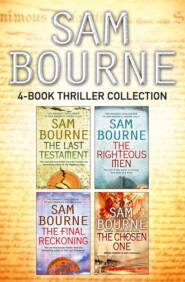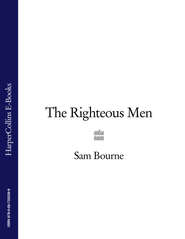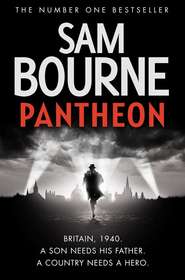По всем вопросам обращайтесь на: info@litportal.ru
(©) 2003-2024.
✖
The Last Testament
Автор
Год написания книги
2018
Настройки чтения
Размер шрифта
Высота строк
Поля
‘Yes?’ The Secretary of State.
‘As I said earlier, ordinarily such a minor incident wouldn't warrant any discussion at all. At the height of the last intifada, these summary executions were happening all the time, at the rate of nearly one a week. But since the parties are supposed to be on a ceasefire, even an internal infraction like this one could turn—’
‘This is background. You said you had more information.’ Miller, conveying another message from the boss: cut to the chase, there's no time to waste.
‘Just a couple of oddities. First, the dead man was in his late sixties. That's older than the usual profile, which tends to match that of the militants themselves.’
Miller raised a damning eyebrow. Militants.
‘Or rather the terrorists themselves. Second, we've had a word with our Israeli counterparts today and they tell us this man was precisely what he seemed to be, an elderly archaeologist. He had done no work for them that they knew of.’
‘So the Palestinians got the wrong guy?’
‘That's possible, Mr Secretary. And death by mistaken identity is not unheard of in this part of the world. But there are other possibilities.’
‘Such as?’
‘It could be the work of a rebel faction. Security's so tight in Israel just now that they can't pull off a terrorist outrage here—’ He left a subtle emphasis on the word ‘terrorist’, for Miller's benefit. ‘So killing one of their own, especially an innocent, well-respected Palestinian like Nour, is the next best thing. It sows dissension among the Palestinians and could provoke the Israelis into breaking off negotiations. Destabilizes the process.’
‘Sounds a long shot to me,’ said Miller, still craning forward in concentration. ‘Israel could say it shows Palestinians are lawless, can't be trusted with their own state. But Israeli public opinion would never swallow it. Break off the whole peace process just because one Arab's blown away? Never. What else?’
‘The other curiosity relates to eye-witness reports from Manara Square in Ramallah. The hooded men hardly spoke but when they did, we're told they had unusual accents.’
‘What kind of accent?’
‘I don't have that information, sir. I'm sorry.’
‘But they could be Israeli?’
‘It's a possibility.’
Miller fell back into his chair, took off his glasses and addressed the ceiling. ‘Christ! What are we saying? That this might be an undercover Israeli army operation?’
‘Well, we know Israel has always run undercover units. Codenamed Cherry and Samson; special forces dressed as Arabs. This could be their latest operation.’
Still rubbing his eyes, Miller asked: ‘Why the hell would they do that now?’
‘Again, it might be an effort to destabilize the peace talks. It's widely known that elements within the Israeli military are fiercely hostile to the compromises the Prime Minister wants to make—’
‘And if this got out, then the Palestinians would be so pissed, they'd walk away. The killing of one of their national heroes.’
‘Yes. And even if the Authority were ready to let it go, the Palestinian street wouldn't let them.’
‘Hence the accidentally-on-purpose slip of the accent.’ The words were barely audible through the chewing.
‘Its one of the lines of enquiry we're pursuing.’
‘It's like a hall of fucking mirrors here!’ Miller threw himself back in his chair. ‘We have the Israelis and the Palestinians at each other's throats. And now we've got rogue elements on both sides.’
‘The possibility at least. Which is why we're taking a close look at the Guttman killing.’
‘What's that got to do with it?’
‘We're asking some questions about the security detail that protects the Prime Minister, wondering if it's possible it was infiltrated. We don't want to rule out the scenario that the man who shot Guttman did so deliberately, following some other agenda.’
Maggie leaned forward, about to mention her strange encounter with the Guttman widow, the previous night. His message was urgent, Miss Costello. A matter of life and death. Maybe it would sound flaky to bring that up here. On the other hand—
It was too late. Miller was getting up out of his chair.
‘OK, people, I think that's enough Oliver Stone for one session. Mr Secretary, we're going to keep pushing the talks at this end as if none of this other stuff was happening. Is that OK with you?’
‘Of course.’
‘And shall I leave you to brief the President?’
‘Sure. Yes.’ Everyone in the room, including the Secretary of State seven thousand miles away, knew this was an empty courtesy: Miller and the President spoke a dozen times before breakfast, no matter how many time zones stood between them. If there was any briefing to be done he would be doing it, probably within minutes.
Miller looked up. ‘Anything else?’ He looked towards Maggie, who shook her head, and then to the consul who did the same. ‘OK.’
The room broke up, every official eager to show the man from the White House that they were hurrying to return to their duties. Maggie filed out behind Davis.
They all left too fast either to see Miller pull out his cellphone or to hear the three short, staccato words he whispered into it once he was connected to Washington: ‘Everything's on track.’
CHAPTER NINE (#ulink_50e28b61-fec7-5fe7-abb5-88c31891527c)
Jerusalem, Tuesday, 3.17pm
Maggie headed to the room Davis had set up for her, a work space for all State Department visitors. Just a desk, phone and computer. That's all she would need. She closed the door.
First, she checked her email. One from Liz, in response to a message Maggie had left on her phone, telling her of the sudden trip to Jerusalem. Subject: You go, girl!
So my serious sister, you've finally made it into my crazy world. You know you're now a character in Second Life? You know, the online thing where I waste WAY too much of my time. Seriously. You're in some Middle East peace talks simulation thing. It even looks like you: though they've given you a better arse than you deserve. Here's a link: take a look …
Maggie clicked on it, intrigued. Liz had mentioned Second Life to her a couple of times, insisting it was not just another dumb game but a virtual addition to the real world. Liz loved it, evangelizing about the way you could travel and meet people – not orcs or dragon-slayers but real people – without ever leaving your computer. It sounded horrendous to Maggie, but her curiosity was piqued. What did Liz mean, that Maggie was now a ‘character’ in it? A ‘peace talks simulation thing’ she understood: there were several of those online, where graduate students would role-play their way through the latest round of Middle East negotiations. Impressive that they already knew she was in Jerusalem. She guessed there had been a paragraph in one of the Israeli papers.
The computer eggtimer was still showing, before eventually freezing in defeat. A message popped up saying something about a security block on the consulate network. Never mind, thought Maggie. Some other time.
She went back through the inbox. Still nothing from Edward. She wondered if that would be it, if they would ever speak again, other than to arrange the removal of what was left of her stuff. Which, thanks to him, was not much.
She clicked her email shut then, out of habit, brought up the New York Times and Washington Post websites. The Times had a story about the Israel shooting on Saturday night, including a profile of the dead man. Happy for the distraction, she read through it.
Shimon Guttman first came to prominence after the Six Day War in 1967, in which he was said to have performed with military distinction. Seizing the chance to make the most of Israel's new control of the historic West Bank territories of Judea and Samaria, Guttman was among the group of activists who famously found an ingenious way to re-establish a Jewish presence in the heavily Arab city of Hebron. Disguised as tourists, they rented rooms in a Palestinian hotel, ostensibly to host a Passover dinner, or seder. Once installed, they refused to leave. In the stand-off with the Israeli authorities that followed, Guttman was especially vocal, insisting that the Jewish connection to Hebron was stronger than with anywhere else in the land of Israel. ‘This is the spot where the Oak of Abraham stands, the ancient tree where Avraham Avinu, Abraham our father, pitched his tent,’ he told reporters in 1968. ‘Here is the Tomb of the Patriarchs, where Abraham, Isaac and Jacob are all buried. Without Hebron, we are nothing.’ Guttman and his fellow activists eventually struck a deal with the Israeli authorities, vacating the hotel and moving instead to a hill north-east of Hebron where they established the Jewish settlement of Kiryat Arba. That hilltop outpost has since flourished into the modern city that exists today, though speculation mounts as to its fate in the new peace accord which could be signed as soon as this week.
That would explain it, thought Maggie. Guttman was worried that the settlement he had founded was about to be surrendered to the Palestinians, along with the scores of other Jewish towns and villages Israel was bound to give up. He had been trying to persuade the Prime Minister to change his mind. And he clearly enjoyed the dramatic gesture. He had climbed a roof in Gaza a few years back and had, she now saw, seized a hotel in Hebron a generation before that. A regular performance artist, she thought.
She Googled him, looking into the handful of English language websites carrying Israeli news. They all told similar stories. Guttman had been first a war hero and then a right-wing extremist with a knack for the big stunt. One site contained a clip of video, apparently from a protest, Guttman at the front of a crowd on some dusty hilltop, all of them waving Israeli flags. Maggie guessed it was some settlement, either about to go up or come down.
He had been an imposing figure, a thick plume of grey hair blowing in the breeze, a healthy belly spilling over the top of his trousers. He filled the frame. ‘The Palestinians need to look at the history,’ he was saying. ‘Because the history says it as clear as can be: the Jews were here first. This land belongs to us. All of it.’





